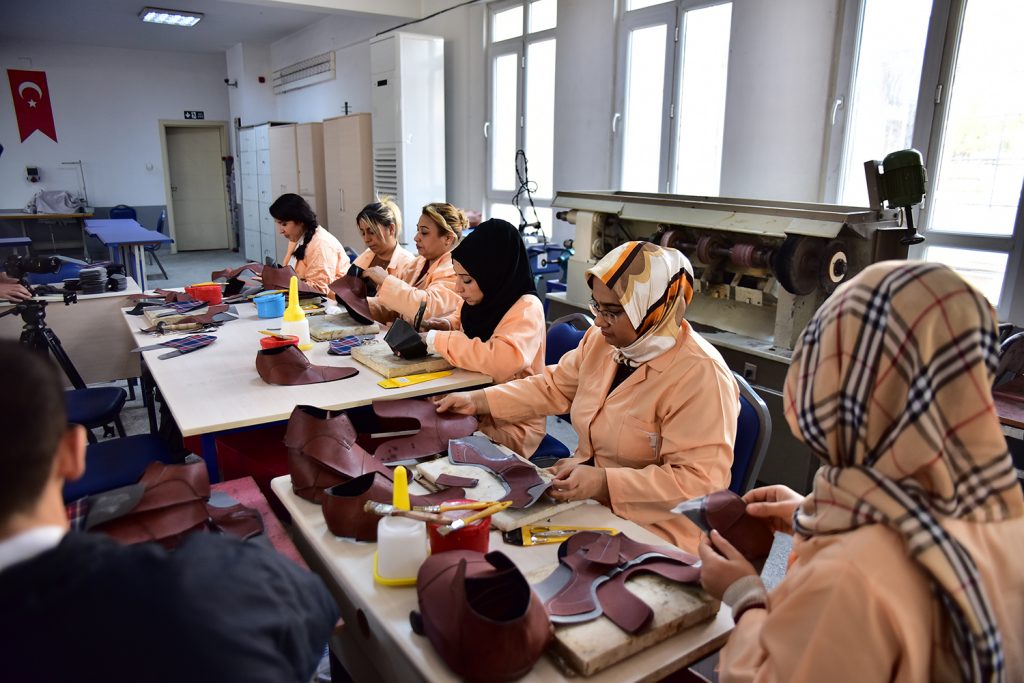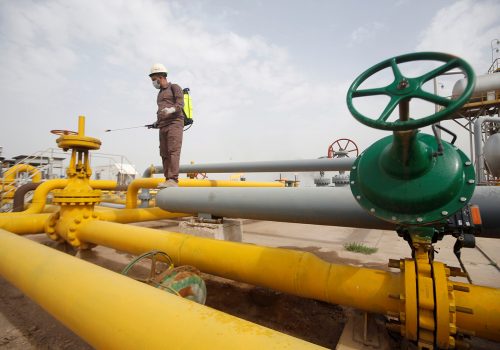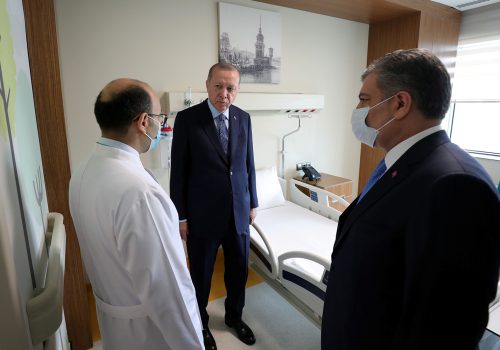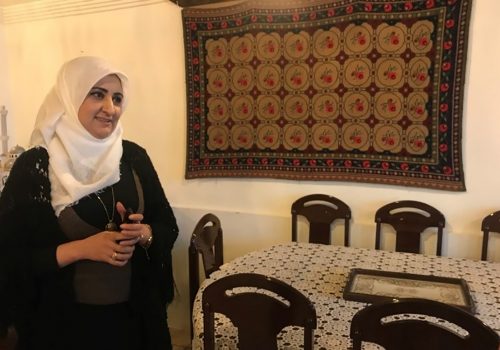Since 2014, Turkey has not only hosted the world’s largest refugee population but has also modeled a best practice for the global refugee policy discussion. Turkey’s opening of its health, education, employment, and social services systems to Syrians under Temporary Protection (SuTP) sits at the basis of this successful response. At the start of 2019/2020 school year, 684,253 Syrian children under temporary protection were enrolled in the Turkish schools, while a network of 179 Migrant Health Centers is currently operating in thirty provinces across Turkey.
Turkey has been the main funding source of this impressive response, incurring a total cost of more than $40 billion according to official data. In line with the principle of burden-sharing, which is highlighted in the Global Compact on Refugees, the international community has also made resources available to support Turkey in this unprecedented effort; over $4 billion has been mobilized through the Regional Refugee and Resilience Plan for Turkey (3RP) since 2015.
Within this framework, Turkey’s experience on the key issues such as jobs and employment should be examined as lessons for both refugee hosting countries and donor countries alike. The country has provided Syrians under Temporary Protection the right to access work permits and formal employment. As a result, a total of 132,497 work permits have been issued to Syrian nationals between 2016 and 2019.
In this context, UNDP Turkey—a longstanding development partner and the co-lead of the Refugee and Resilience Response Plan (3RP)—joined hands with the Atlantic Council’s program on Turkey—”Atlantic Council IN TURKEY”—to explore policy options to foster socioeconomic inclusion among Syrians under Temporary Protection. Building on the experience and expertise of both organizations, our joint policy report, which is to be released ahead of the June 30 Brussels Conference, aims at outlining pragmatic and innovative options at policy and programmatic levels to facilitate refugees’ access to decent employment.
Self-reliance and access to formal employment
Facilitating self-reliance for such a large number of refugees’ households remains a daunting task, even in the medium to long-term. This is especially the case in a context where increasing levels of unemployment in Turkey compounded by the socio-economic impact of the COVID-19 pandemic have posed a serious challenge to job creation and increased competition for available opportunities.
Despite a concerted effort and strong leadership , there have been challenges for refugees to achieve self-reliance, best highlighted by a recent assessment that 1.6 million refugees live below the poverty line. The impact of the COVID-19 pandemic has further highlighted the vulnerability associated with informal work and casual labor, with many refugees and host communities facing a sudden and unexpected loss of income.
The internationally supported cash response to directly assist the most vulnerable (the Emergency Social Safety Net—ESSN—and the Conditional Cash Transfer for Education—CCTE) has been crucial in allowing refugees to meet their basic needs over the past couple of years. However, given the overall cost of such programs in the long-term, access to income and formal employment remains a key challenge. The Exit Strategy from the ESSN program released by the government in December 2018 marks a step towards a conducive policy framework to facilitate refugees’ access to formal employment.
Policy options
The main findings of the joint report highlight that:
- The main challenge remains in matching refugees to the labor market by raising enhancing their skills. While international partners have contributed to this end over the past years, it hasn’t been enough for refugees to become employable options for many large Turkish companies—many of the most skilled Syrians fled to Europe.
- Businesses’ support programs need to go beyond job placement of refugees in small businesses in exchange for business development support and grants. More integrated structural investments at the local level are needed, particularly, in industrial, manufacturing, and agricultural value chains.
- While the presence of refugees can be seen as an asset to catalyze local development, host communities need to be supported equitably as well.
- The current priority towards the formalization of existing jobs is paramount to ensuring decent work conditions for refugees, appropriate access to income, and fair competition between job seekers. The recent inspections to raise awareness of employers on employment regulations for Syrian workers have yielded important results in Istanbul, significantly increasing work permit applications by employers. This could be applied elsewhere.
Private sector engagement and digital solutions
Based on other international experiences, we also identified deepening engagement with the private sector and exploring digital livelihoods opportunities as emerging solutions to this issue.
These two solutions are particularly tailored to the challenges of the situation in Turkey, as they can create opportunities for both Turkish companies and individual Syrians, alleviating pressure on the labor market. Digital solutions (such as digital entrepreneurship, e-commerce, or language and translation businesses) are particularly promising as they create new, sustainable job creation dynamics that have the potential to expand both within Turkey to benefit most vulnerable refugees and internationally by accessing new markets. Given the scale of the task at hand, every possible contribution should be maximized to further unleash the resilience and potential demonstrated by Syrian refugees and their host communities.
The COVID-19 pandemic is proving to be an important test on the government’s and their international partners’ relevance and flexibility and their ability to quickly step up efforts in that direction. Pursuing these solutions and policy options would help further promote the refugee response in Turkey as a best practice in implementing the key principles of the Global Compact for Refugees.
Bastien Revel is an inter-agency coordinator with UNDP Turkey. You can follow UNDP Turkey on Twitter @undpturkiye.
The views expressed in TURKEYSource are solely those of the authors and do not necessarily reflect the views of the Atlantic Council, its staff, or its supporters.
Further reading:
Image: Syrian women reveal their potential through decent jobs and sustainable livelihood opportunities. Production line at a traditional shoe factory, Hatay (Mustafa Bilge Satkın @UNDP Turkey)



